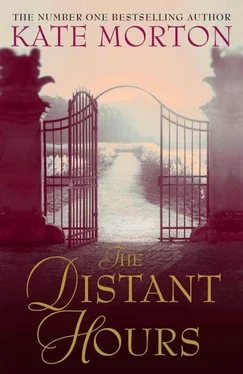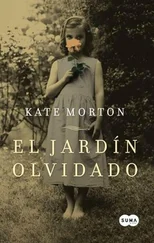But that was long ago and he a foolish old man becoming lost amidst fading memories. His mother was little more than a distantly revered poetess around whom myths were beginning to form as myths were wont to do – the whisper of a summer’s breeze, the promise of sunlight against a blank wall – Mummy … He wasn’t even sure he could still remember her voice.
The room belonged to him now: Raymond Blythe, King of the Castle. He was his mother’s eldest son, her heir and, along with the poems, her greatest legacy. An author in his own right, commanding respect and – it was only honest, he countered when a wave of humility threatened – a certain fame, just as she had done before him. Had she known, he often wondered, when she’d bequeathed the castle to him along with her passion for the written word, that he would rise to meet her expectations? That he would one day do his bit to further the family’s reach in literary circles?
His bad knee seized suddenly and Raymond clutched it hard, stretching his foot in front of him until the tension eased. He hobbled to the window and leaned against the ledge while he struck a match. It was a damn near perfect day and as he sucked on his pipe to get it smoking, he squinted across the fields, the driveway, the lawn, the quivering mass of Cardarker Wood. The great wild woods of Milderhurst that had brought him home from London, that had called to him from the battlefields of France, that had always known his name.
What would become of it all when he was gone? Raymond knew his doctor spoke the truth; he wasn’t stupid, only old. And yet it was impossible to believe that a time was coming in which he would no longer sit by this window and look out across the estate, master of all that he surveyed. That the Blythe family name, the family legacy, would die with him. Raymond’s thoughts faltered; the responsibility to avoid this had been his. He ought to have remarried, perhaps, tried again to find a woman who could deliver him a son. The matter of legacy had been very much on his mind of late.
Raymond drew on his pipe and puffed with soft derision, just as he might in company with an old friend whose familiar ways were becoming tiresome. He was being melodramatic, of course, a sentimental old fool. Perhaps every man liked to believe that without his presence the great foundations would crumble? Every man as proud as he, at any rate. And Raymond knew he ought to tread more carefully, that pride comes before a fall, as the Bible warned. Besides, he had no need of a son: he had a choice of successors, three daughters, none of them of the marriageable type; and then there was the church, his new church. His priest had spoken to him recently of the eternal rewards awaiting men who saw fit to honour the Catholic brethren in such a generous way. Canny Father Andrews knew Raymond could use all the heavenly goodwill he could arrange.
He took in a mouthful of smoke, held it a moment before exhaling. Father Andrews had explained it to him, the reason for the haunting, what must be done to exorcise Raymond’s demon. He was being punished, he knew now, for his sin. His sins. To repent, to confess, even to self-flagellate had not been enough; Raymond’s crime was greater than that.
But could he really hand his castle over to strangers, even to smite the wretched demon? What would become of all the whispering voices, the distant hours, caught within her stones? He knew what Mother would say: the castle must stay within the Blythe family. Could he really bear to disappoint her? Especially when he had such a fine natural successor: Persephone, the eldest and most reliable of his children. He’d watched her leave by bicycle that morning, watched as she stopped by the bridge to check its footings, just as he’d once shown her. She was the only one amongst them whose love for the castle came close to matching his own. A blessing that she’d never found a husband, and wouldn’t now, certainly. She’d become a castle fixture, as much his own possession as the statues in the yew hedge; she could be trusted never to do wrong by Milderhurst. Indeed, Raymond sometimes suspected she, like he, would strangle a man with her bare hands if he so much as threatened to remove a stone.
He noticed then the noise of an engine, a motorcar, somewhere below. As quickly as it had started it stopped, a door slammed, heavy, metallic, and Raymond craned to see over the stone windowsill. It was the big old Daimler; someone had driven it from the garage to the top of the driveway, only to abandon it. His attention caught on a moving figment. A pale sprite, his youngest, Juniper, skipping from the front stairs to the driver’s door. Raymond smiled to himself, bemusement and pleasure combined. She was a scatty waif, that was certain, but what that thin, loopy child could do with twenty-six simple letters, the arrangements she could make, were breathtaking. If he a were a younger man, he might have been jealous-
Another noise. Closer. Inside.
Hush … Can you hear him?
Raymond froze, listening.
The trees can. They are the first to know that he is coming.
Footsteps on the landing below. Climbing, climbing towards him. He laid his pipe down on the flat stone. His heart had begun to kick.
Listen! The trees of the deep, dark wood, shivering and jittering their leaves … whispering that soon it will begin.
He exhaled as steadily as he could; it was time. The Mud Man had come at last, seeking his revenge. Just as Raymond had known he must.
He couldn’t escape the room, not with the demon on the stairs. The only other option was through the window. Raymond glanced over the sill. Straight down like an arrow just as his mother had done.
‘Mr Blythe?’ A voice drifted up the stairs. Raymond readied himself. The Mud Man could be clever; he had many tricks. Every inch of Raymond’s skin crawled; he strained to hear over his own rough breaths.
‘Mr Blythe?’ The demon spoke again, closer this time. Raymond ducked behind the armchair. Crouched, quivering. A coward to the very end. The footsteps came steadily. At the door. On the carpet. Closer, closer. He screwed shut his eyes, hands over his head. The thing was right above him.
‘Oh, Raymond, you poor, poor man. Come along; give Lucy your hand. I’ve brought you some lovely soup.’
On the outskirts of the village, either side of the High Street, the twin lines of poplars stood as ever, like weary soldiers from another time. They were back in uniform now, Percy noted as she whizzed by, new white stripes of paint around their trunks; the kerbs had been painted, too, and the wheel rims of many cars. After much talk, the blackout order had finally come into effect the night before: half an hour past sundown the streetlights had been extinguished, no car headlights were allowed, and all windows had been curtained with heavy black cloth. After Percy had checked on Daddy, she’d climbed the stairs to the top of the tower and looked out across the village in the direction of the Channel. The moon had cast the only light and Percy had experienced the eerie sensation of feeling what it must have been like hundreds of years before, when the world was a far darker place, when armies of knights thundered across the land, horses’ hooves thrummed the hard soil, castle guards stood poised and ready- She swerved as old Mr Donaldson drove along the street seemingly right at her, steering wheel gripped tight, elbows stuck out to the sides, face held in a grimace as he squinted through his specs at the road ahead. He brightened when he made out who she was, lifted his hand to wave and dragged his car even closer to the road’s edge. Percy waved back from the safety of the grass, following his progress with a barb of concern as he zigzagged towards his home at Bell Cottage. What would he be like once night fell? She sighed; bombs be damned, it was the darkness that was going to kill people around here.
Читать дальше












